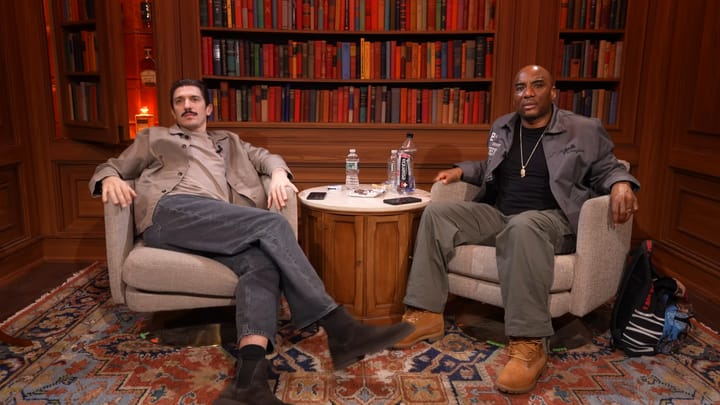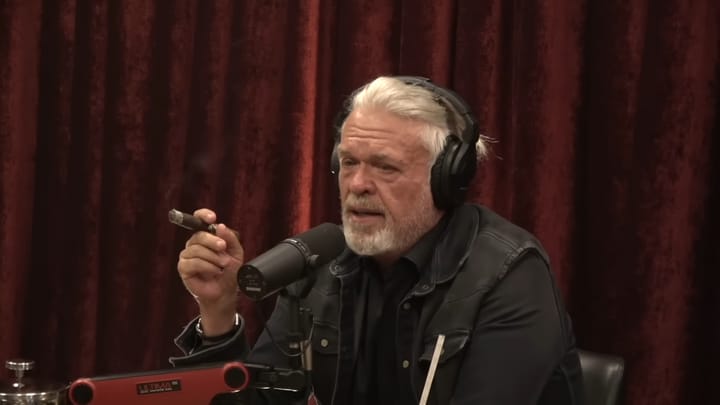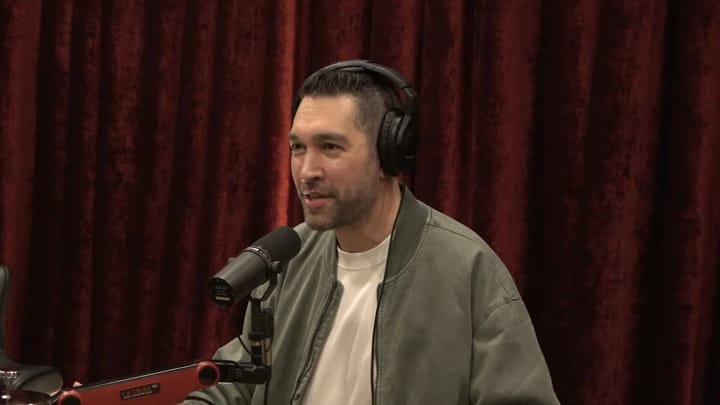You'll Never Guess Which Podcasters Took Ad Money from a Trump's Allies
And a few thoughts about podcasters' role in the rise of RFK Jr.
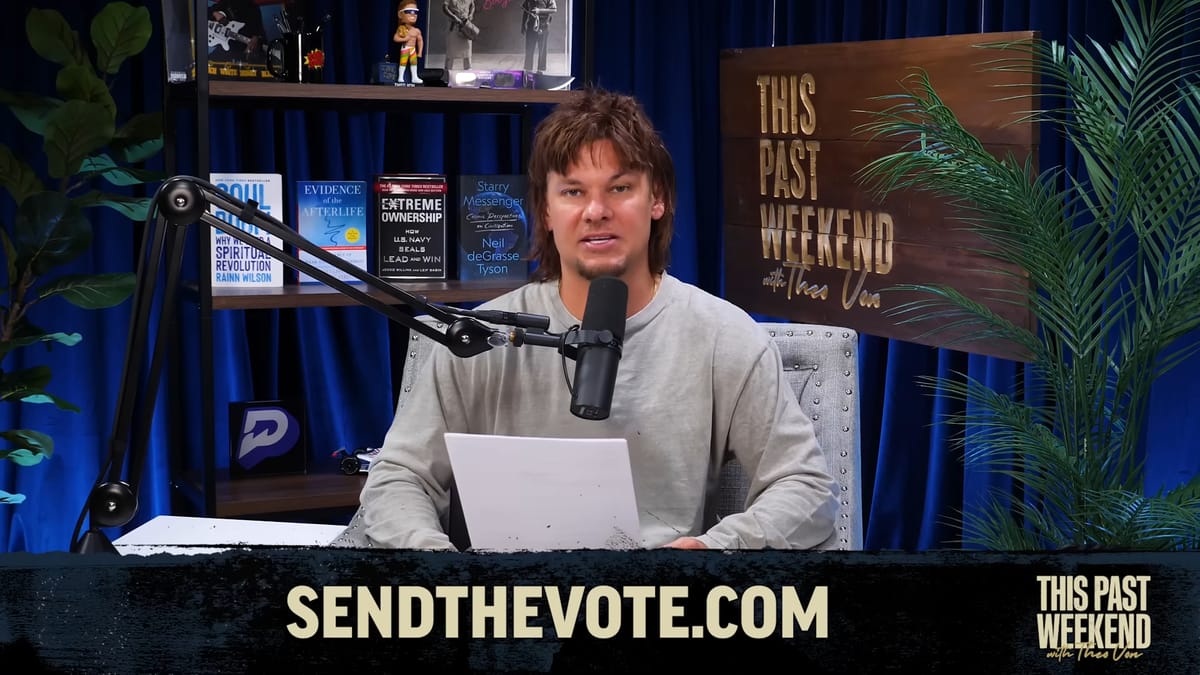
Yesterday Puck put out an illuminating poll that attempted to quantify podcasters’ impact on the election. In short, they had… some:
Echelon did find a small but meaningful gap between how voters learned about Trump and Harris in the media: podcasts. Only 14 percent of voters said they learned information about Harris from a podcast, but 23 percent said they heard news about Trump from a podcast. That’s likely a reflection of how central podcasts have been to Trump’s media strategy for years, whereas Harris only leaned into audio later in her abbreviated campaign. Among voters who heard Trump on a podcast, 55 percent said it influenced their vote, compared to 44 percent who said it did not.
Echelon also asked podcast listeners if they saw or heard Trump on a specific podcast or livestream in the run-up to Election Day. Among those who did, 72 percent said they saw or heard Trump on The Joe Rogan Experience, which is probably not surprising given Rogan’s distributed reach across platforms. Others said they saw or heard Trump do interviews with Theo Von (17 percent), Andrew Schulz (14 percent), or Logan Paul (14 percent), but Rogan’s reign in the podcast space remains unchallenged.
Maybe it’s not terribly surprising, but I’m still struck by that differential between the percentage who encountered Trump on JRE versus other podcasts. In an episode with Tim Dillon after the election, Rogan himself claimed that the interview has more than 100 million views across Twitter, YouTube, and Spotify, which doesn’t seem too implausible—as of today, it has 51 million on YouTube alone. Theo Von’s, meanwhile, has 15 million, while Andrew Schulz’s has 8.5 million. Rogan really does have incredible reach.
I wrote a few weeks ago that this election should do away with any notion that comedy’s right-wing podcasters are, somehow, apolitical. Today I will add to this an interesting fact that I’m embarrassed to admit I’d missed: in the days and months leading up to the election, some of these podcasters took ad money from a get-out-the-vote effort closely aligned with the GOP and the Trump campaign.
As the Wall Street Journal reported in August, the initiative, Send the Vote, launched on an episode of the podcast Full Send, hosted by Canadian-American YouTubers The Nelk Boys:
The effort, whose organizers are aiming to raise $20 million, will partner with entertainers and sports figures, including those from the Ultimate Fighting Championship, the mixed-martial arts phenomenon Trump has courted. The effort will focus on nine states, including the battlegrounds of Georgia, North Carolina, Pennsylvania, Michigan, Wisconsin, Arizona and Nevada.
“We have seen a growing movement of young people across this country rallying behind a pro-freedom, pro-America agenda for our country’s future who want to see prosperity and opportunity restored for all,” said John Shahidi, a co-founder of the Send the Vote organization and president of “Full Send.” “Send the Vote provides a needed platform to help reach those voters where they are, and ensure they turn out on Election Day.”
Officially the group is nonpartisan and formed as a nonprofit that won’t have to disclose its donors. Another co-founder is Taylor Budowich, who oversees the primary super PAC supporting Trump, MAGA Inc.
John Shahidi runs the Shots Podcast Network, which hosts Full Send as well as Theo Von’s podcast. (He is also reportedly close with Trump advisor Elon Musk.) Budowich, meanwhile, was recently named as Trump’s incoming Deputy Chief of Staff for Communications and Personnel and Assistant to the President.
As the election approached, Send the Vote ran ads on Kill Tony, The Tim Dillon Show, and This Past Weekend w/ Theo Von, alongside other podcasts geared towards young men, like BS w/ Jake Paul and MrBallen. Here’s how Politico described the strategy in October:
By reaching out to young men, some of whom came of age during the former president’s administration, Trump, who long before running for office had cultivated an alpha-male like image with his involvement in sports and entertainment, is capitalizing on goodwill from a demographic he hopes will support him. And there are indications Trump is making inroads with the group, which like other youth subsets traditionally tilts liberal. According to a recent Harvard Youth Poll, 35 percent of men between 18 and 24 years old said they supported Trump — an improvement of 5 percent from Trump’s performance in the same survey in the 2020 election.
Trump’s immersion in “bro” culture began in the aftermath of the 2020 election and the Jan. 6 Capitol riot, when the defeated Trump was being spurned by the political class. In response, his team came up with an idea, according to a person familiar with the conversations: Redefine him as the pop culture figure he had been before he entered office, and have him appear in non-political settings and before non-mainstream media outlets.
As these reports note, Send the Vote purported to be nonpartisan, and indeed their ad copy stressed as much. Here’s Theo Von:
Election day is coming up on November 5th and there's this really cool website, sendthevote.com that makes it easy to register to vote. It's nonpartisan, which means they don't care who you're voting for, they just wanna make sure you can vote. Head over to sendthevote.com. They'll help you sign up, register, and even check if you are good to go. I'll drop a link in the podcast description. Let's all get out there and cast our votes this November. Again, that is sendthevote.com. S-E-N-D-T-H-E-V-O-T-E dot com.
As these reports also note, Send the Vote wasn’t especially committed to this pretense. Here’s one of Tony Hinchcliffe’s ad reads, in an episode recorded at the Comedy Mothership featuring comedians Joe DeRosa and Chris Distefano:
[…] If you go to sendthevote.org/tony, you can register to vote. But vote for the right person. Because if you like this show, I'll tell you, they already make us bleep certain words. And there's one of the candidates that isn't exactly that big on free speech. I'm not gonna give anything away.
What can I say? These guys know their audience.
A quick breath of fresh air from Anthony Jeselnik in the latest episode of The Jeselnik and Rosenthal Vanity Project:
Apologies for being off for so long. I feel like we could have changed the outcome of the election if we had been here. I know a lot of podcasters got involved. Notice I said “podcasters.” I did not say “comedians.” A lot of podcasters got involved. Look, if you have a presidential candidate or a major politician on your show and you do not fuck with them in any way, you're a podcaster. You're not a comedian. If you cancel an entire weekend of shows at the very last second, so you can run yourself to Washington DC to interview a vice presidential candidate and then post a picture of your arms around each other, you're not a comedian.
As the political and entertainment media establishments argue about podcasters’ role in electing Donald Trump, I think they may be missing an important discussion: podcasters’ role in elevating Robert F. Kennedy Jr.
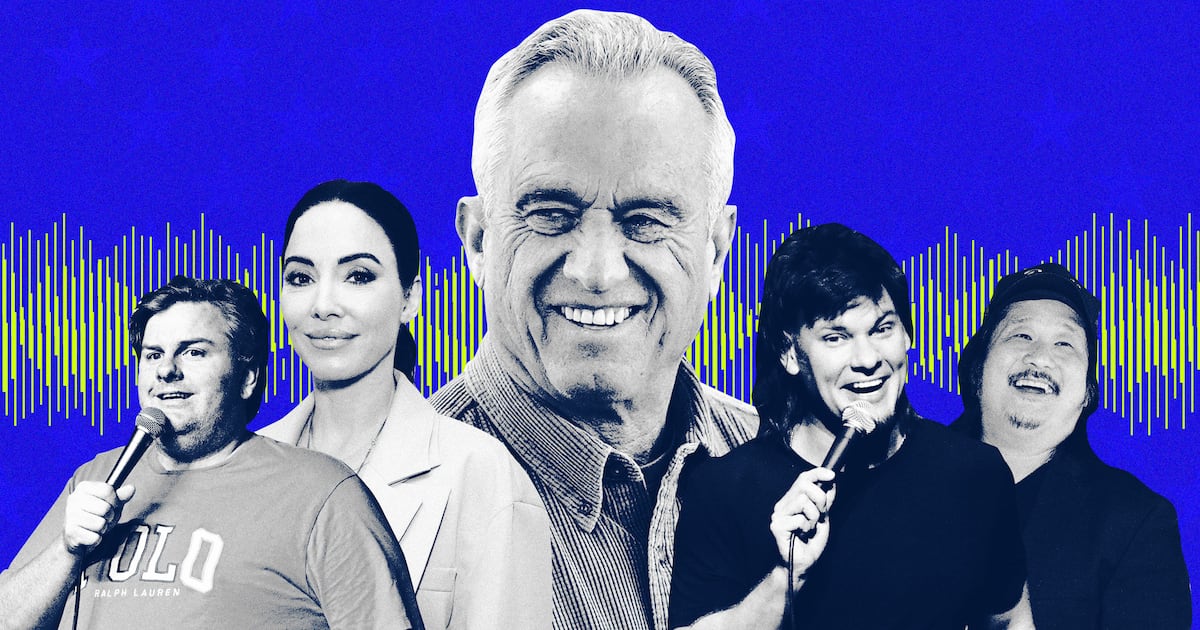
At the time he appeared on a murderer’s row of comedy podcasts, Kennedy was an obvious spoiler candidate. Unlike Trump, a former president with whom comedians clearly identify as an entertainer, Kennedy is a thoroughly uncharismatic figure who has never held office. It makes good sense that comedians would be dazzled by Trump, a powerful man who appeals to their politics; in addition to not being dazzling at all, Kennedy’s only meaningful political nexus with these folks is his anti-vaccine stance.
Whereas Trump’s podcast blitz was a strategic GOTV effort, in other words, I don’t think we can view Kennedy’s through the same lens. He never had any hope of winning the presidency, and he knew it. We might view his own podcast blitz as a way of burnishing his reputation: Trump needed comedians to help him reach voters, RFK Jr. needed them to help him audition for Trump.
Maybe I’m totally off-base here, and I’d be glad to hear your thoughts on the matter. But it really does seem to me that while it’s clear comedians only had a small role in Trump’s reelection, they likely had a much more tangible one in the rise of our presumptive next Secretary of Health and Human Services—just as the threat of another pandemic looms over the horizon. And I don’t think we should ever forget this.

